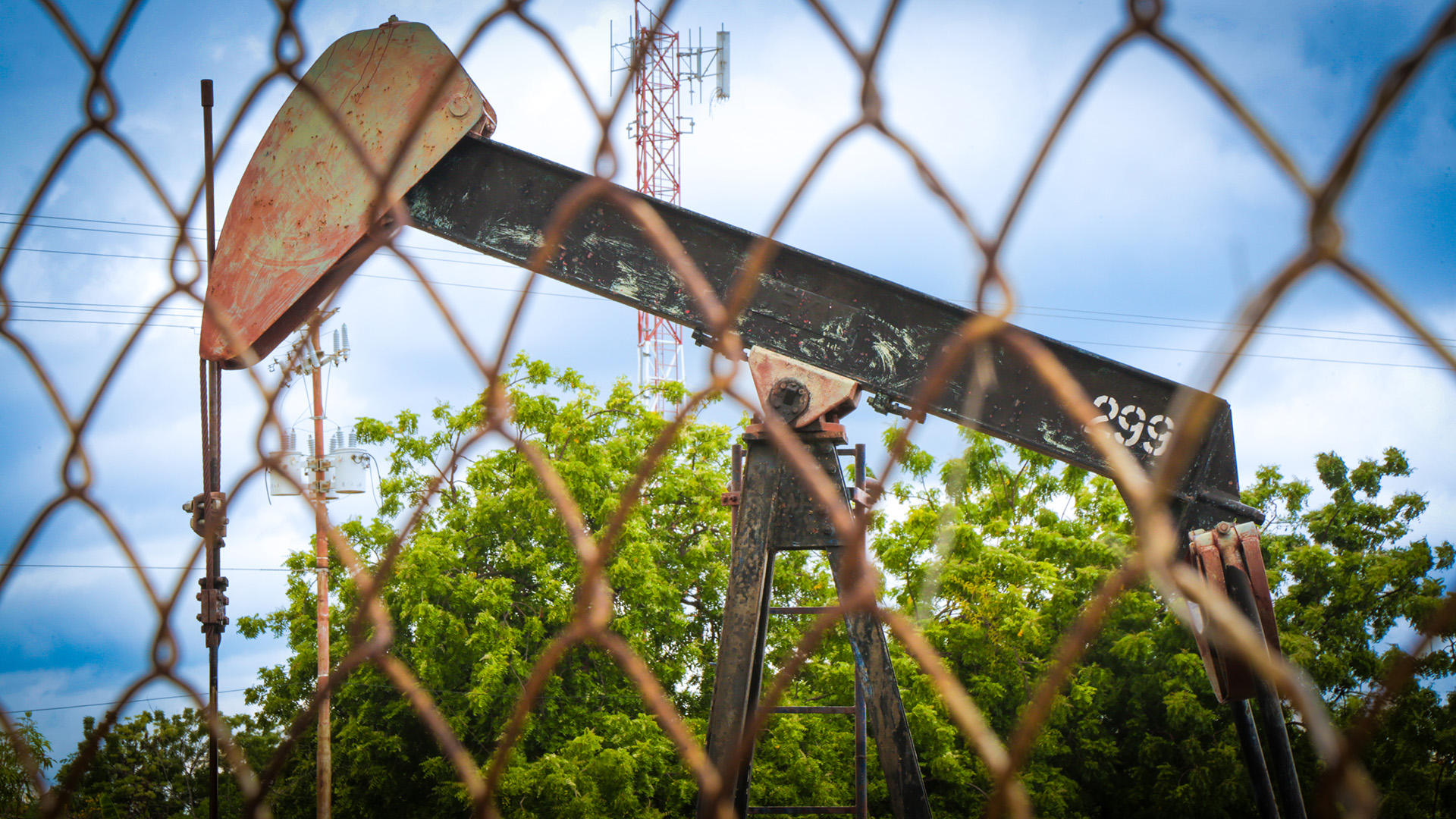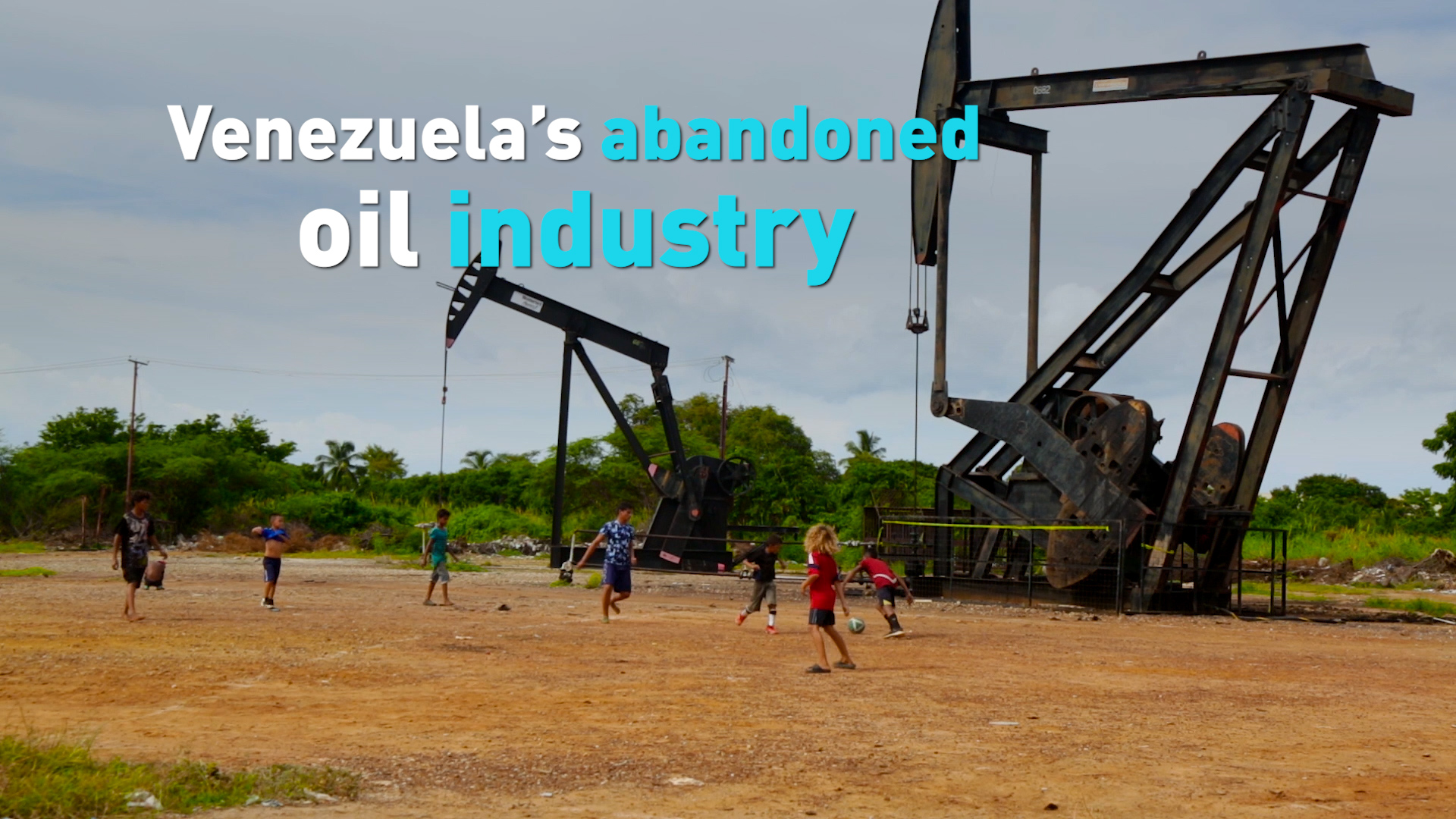01:39

Venezuela was once one of the wealthiest oil nations, but now, despite sitting on the largest proven oil reserves in the world, the country doesn't even rank among the top 10 producers.
More than a century ago, oil was first discovered in the city of Cabimas, marking the beginning of what would become a prolific era of oil production across the region.
Located in the northwestern state of Zulia, Cabimas was the crown jewel of Venezuela as the epicenter of a thriving, rich country.
Today, that story of success has been left behind.
Where hundreds of wells used to operate, now just a handful are actively drilling. Most oil rigs have been shut down, leaving the grey steel girders rusty and abandoned.
William Gutiérrez worked at the state oil company PDVSA for 20 years. He has witnessed firsthand how the industry went from one of the largest in the world to an impoverished one.
The former PDVSA worker regrets how things have changed in the company to which he dedicated his life.
"It was a great company with all benefits," says Gutiérrez. "But now the majority of employees only work part-time, and then they go home or take a second job to be able to make ends meet."
Oil output in Venezuela has plummeted by more than 75 percent in the last ten years from more than three million barrels a day to just about 700,000.
Several factors are to blame, including falling oil prices, corruption, underinvestment, expropriations and international sanctions, which are affecting access to the export market.
As this main source of income has dried up, industry workers have lost their jobs, and the impacts have rippled out to the broader economy.
Carlos Lameda is a contractor for the local oil industry in Cabimas who says job opportunities are scarce.
"When the oil industry is working, companies have to go out to work and they are forced to hire us," says Lameda. "But as long as the industry does not start up we are at a standstill."
The situation may now be improving after the global energy crisis last year prompted the lifting of some sanctions against Venezuela.
In November, the U.S. authorized Chevron, the only remaining American company operating in Venezuela, to start pumping oil again at a limited capacity.
Venezuelan oil expert José Toro Hardy says it will take time and investment to restore the century-old industry to its former glory.
"In order to recover Venezuela's oil industry, I estimate that $25 billion per year are needed," says Toro. "Per year for the next eight years to get us closer to what we used to produce 20 years ago."
The government of President Nicolas Maduro says that one of the first steps to boost the industry is to put an end to internal corruption.
Currently, PDVSA is facing an investigation that has led to the arrest of dozens of government officials. The amount embezzled has not been disclosed, but media reports say the missing oil payments are estimated to be at least $3 billion.
After years of neglect, oil facilities have been severely affected, with repercussions for the environment.
A lack of maintenance on gas and oil pipelines is causing leaks and spills across Maracaibo Lake. The oil is making its way to the shore, where it's affecting all living creatures and jeopardizing the livelihoods of fishermen like Yanis Rodríguez.
"For us, for the fishermen, oil means destruction," explains Rodríguez. "Because our nets are being damaged, the engines are damaged, some fishermen get sick because they need to wash out the oil using chemicals like gasoline."
PDVSA says it has begun clean-up work on all shores. But environmentalist group Azul Ambientalistas estimates that between 500 and 1,000 barrels of oil end up in the Maracaibo Lake every single day.
02:58

Environmental advocate Yohan Flores is the coordinator in Zulia State of the non-profit Azul Ambientalistas, which has been working for over a decade in Venezuela.
"This is causing Maracaibo Lake to continue to die slowly, all fish and species, its flora and fauna are dying completely," said Flores.
Chevron has asked the Venezuelan government to dredge Maracaibo Lake in order to nearly double oil production from 250,000 barrels a day to 400,000.
That would boost Venezuela's output to one million barrels a day, returning a deteriorated industry to a more prolific past.